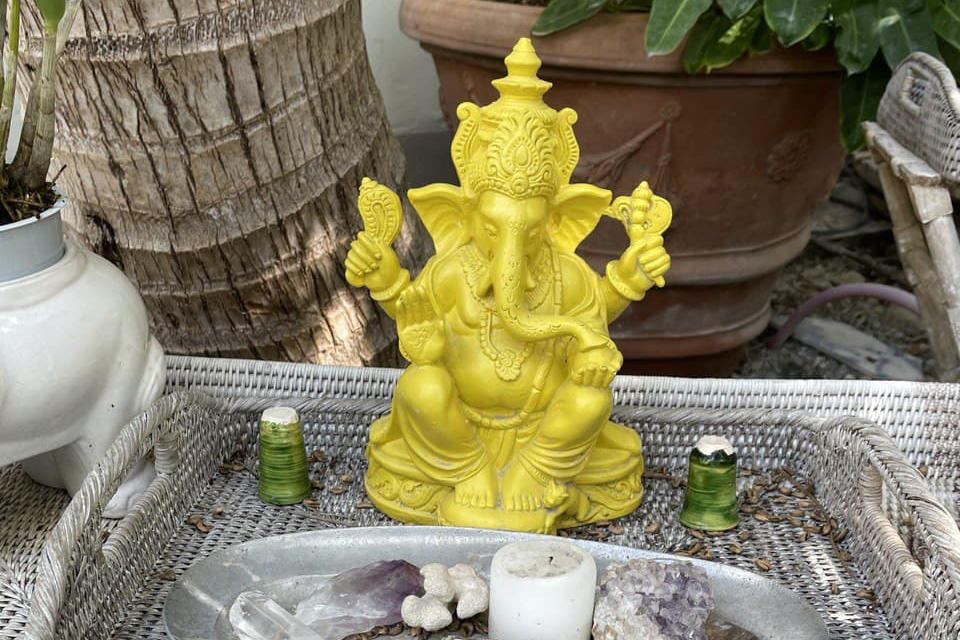SELF LOVE
Meditation
Let’s continue learning about Buddhism. In my opinion, Buddhism is the only alternative to religion. I can presume that those individuals who came unprepared today, the information below might seem boring.
Enlightenment is an ideal state of mind, where anger, desire and indifference are utterly purified (absent) due to wisdom. Wisdom is the essence of reality. Reasonableness or reasonable life means that you do not make mistakes or wrong actions. The mind is a kind of radar that helps to avoid consequences even before something occurs.
Humans are hostages to their desires. The desires can make us jealous, angry, sad, or simply go crazy. All these yearnings do not let us become completely happy, so you need to train your mind, and one of the methods is meditation.
In order to achieve enlightenment, 3 things are needed: vision, meditation, and demeanor. Vision is an ability to see through. It is like a map by which the Buddhist moves. Imagine that your goal is a diamond mansion, so vision acts as a staircase to it. Teachers provide other metaphorical examples for understanding vision. There are several steps to the latter. At first it’s like a gem in a fist. In the following, at the higher stage, vision is like a passion with which a mother cares for her newborn. And last one, the final vision, is like reaching the peak of the tallest mountain. The vision which one accomplishes at the end grants full self-confidence and compassion towards others.
One of the paths that leads to enlightenment, as I already stated, is meditation. This is what calms the mind. There are two types of meditation practiced by Buddhists — Samatha and Vipassana.
Samatha brings peace and tranquility. Merely in a state of rest the mind becomes free. Samatha is basic meditation. It is the first step towards overcoming a “corrupt” mind and nullifying negative thoughts as well as harmful emotions. After the samatha technique has been mastered, you can proceed to vipassana. Vipassana is a type of more advanced meditation, when the mind becomes steady. Buddhists love to compare this state of mind to a rock. For people who are beginning to explore Buddhism, teachers always make similar comparisons. They help you understand the principles more clearly.
I admire the expression “homeless thoughts” (not mindless, just homeless, like dogs that have no home). These thoughts are like mad elephants that are difficult to calm down. What a fantastic metaphor! Thanks to Samatha, we can completely clear our mind of evil thoughts, as well as strengthen our concentration, which would help us avoid mistakes when we perform an action.
Factors contributing to meditation and spiritual growth:
Place. Valley. Mountains. Forest. Lake. This can be your own home if you feel comfortable there. You need an environment in which nothing distracts you. You can also meditate in your room, if it would be enough to determine the point of concentration. It can be a flower, a candle, or a lamp with fire. Remember to approach meditation in a positive state of mind. If you’re sensing aggression or any form of stress, you first need to calm down by simply finding your point of concentration. By overcoming such sensations, you overcome yourself. You become the master of your own life, and more. You can become the protector of others, because you have already learned the need for calmness both in meditation and in ordinary life.
Reducing the amount of desires and demands. Diminishing or reducing these two aspects is not, in fact, simply diminishing what you want. The main cause of suffering is desire, a constant pursuit of something that can provoke negative emotions, or a bad habit, or attachment. A good example was given by this teacher, who he said that a monk shouldn’t wear expensive clothes, since he renounces mundane life and should not have any attachment to it. Probably, many non-nuns should think about this. Start by not refusing to be a hostage to your material values. As a monk, try to demonstrate your freedom from attachment.
Satisfied (content) mind. It is important to be content with what we have, or with what we are given. This is important not only for an individual who practices meditation, but for all of humanity. A person with a content mind is the richest and happiest person on Earth, since unhappiness and fear derive from a displeased mindset. Here’s another good illustration of a discontent mind. People with a dissatisfied mind are usually like vacuum cleaners that absorb everything indiscriminately, desperately aiming to find their lost or never-discovered mind. It is very challenging for such a person to meditate, even because he is simply not fulfilled with everything that he has collected throughout his lifetime in terms of personal property or even achievements.
Termination of all the activities during meditation. No business negotiations, chatter, or teachings. By the way, any gossip energetically leads to an increased mental agitation and anxiety (note to the hostess).
Morality. To put it simply, a person who meditates must have a certain morality. Basically, these are all things we are already familiar with, such as in life he should not deceive, nor steal or take someone else’s belongings, behave sexually correctly, and so on.
Destruction of any greedy thoughts, desires of fame, wealthiness, power, and any other greedy wishes.
This is a fundamental exposition of conscious living. Not everyone is able to live consciously, but at least everyone would like to. However, such an opportunity is not given to each individual. It is quite possible that not everyone needs it.
Author: Masha Lopatova

